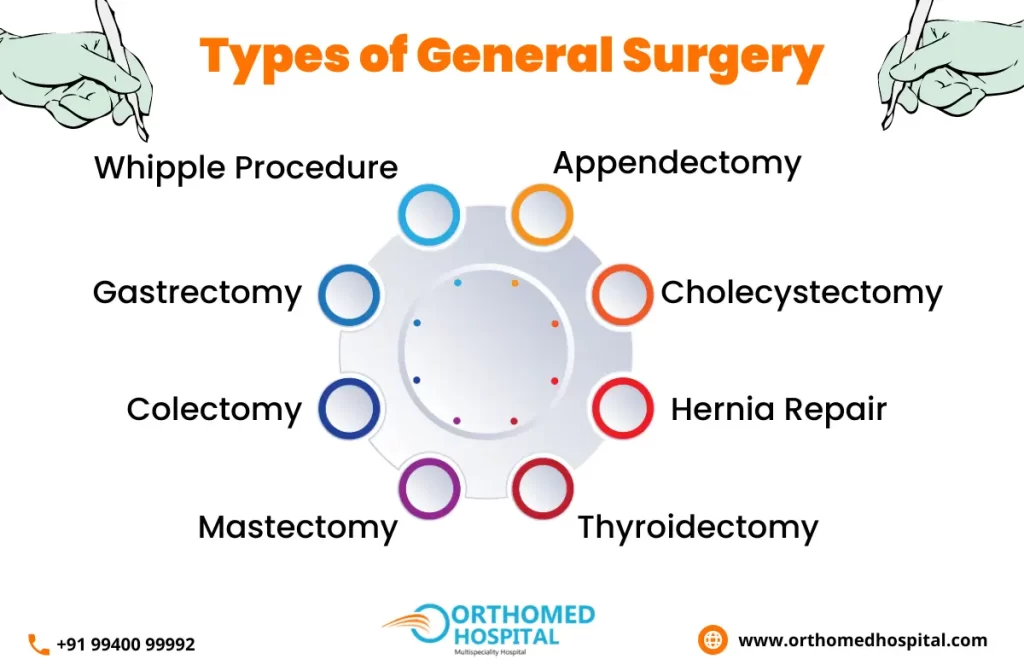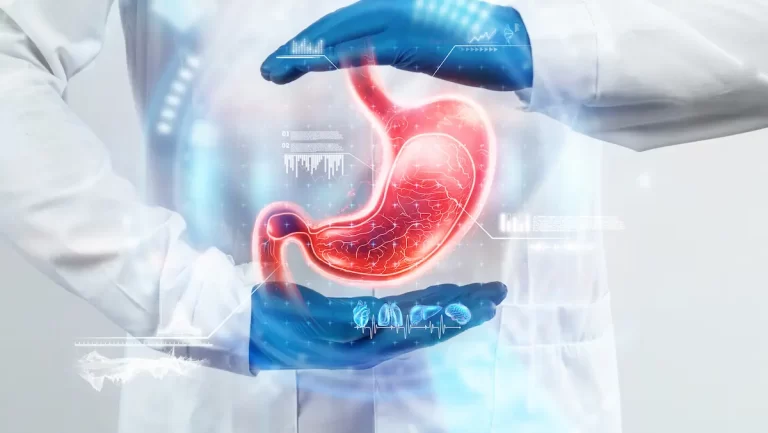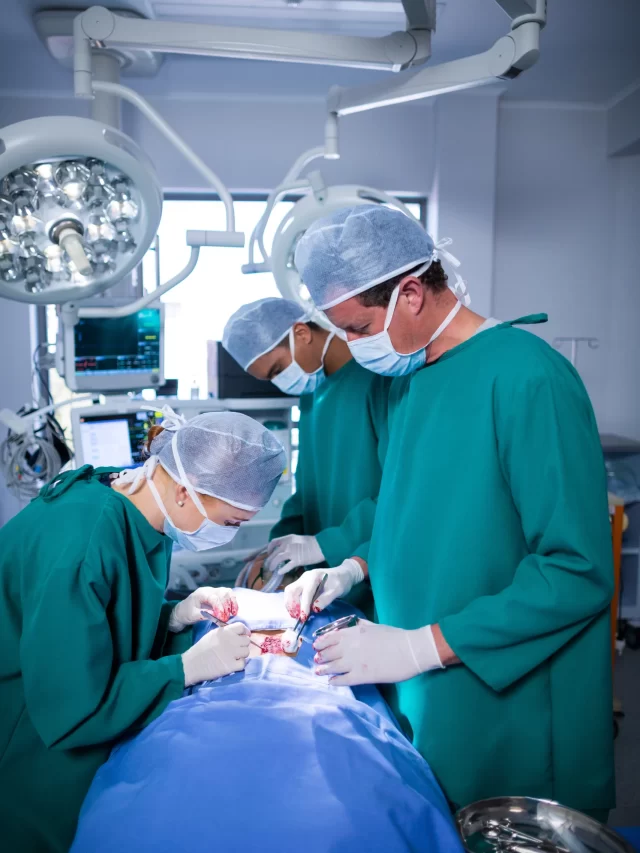General surgery and gastroenterology are two medical specialties that focus on the diagnosis, treatment, and prevention of conditions affecting the digestive system. General surgery in Chennai involves the treatment of a wide range of medical conditions that require surgical intervention.
These conditions can include but are not limited to, hernias, appendicitis, gallbladder disease, breast cancer, and thyroid disease. General surgeons are trained for performing a variety of surgical procedures, including open surgeries and minimally invasive surgeries.
On the other hand, gastroenterology in Chennai is a medical speciality that deals specifically with conditions affecting the digestive system. This can include the esophagus, stomach, intestines, liver, pancreas, and gallbladder. Gastroenterologists are trained to diagnose and treat a range of conditions such as acid reflux, ulcers, inflammatory bowel disease, colon cancer, and liver disease.
Some conditions may require the expertise of both a general surgeon and a gastroenterologist. For example, patients with colon cancer may require surgery to remove the tumor, followed by chemotherapy or radiation therapy, which are typically administered by a gastroenterologist.
If you are experiencing symptoms related to your digestive system, such as abdominal pain, difficulty swallowing, or persistent heartburn, it is important to seek medical attention from a qualified healthcare provider. Your healthcare provider can assess your symptoms, provide a diagnosis, and recommend the appropriate treatment plan, which may include surgical intervention or medical management.

When to See a Gastroenterologist?
You may want to consider seeing a gastroenterologist in the Department of Gastroenterology in Chennai if you experience any of the following symptoms or conditions:
1. Abdominal pain or discomfort that is severe or persistent.
2. Chronic constipation or diarrhea.
3. Blood in your stool.
4. Difficulty swallowing.
5. Heartburn or acid reflux that does not respond to medication.
6. Unexplained weight loss.
7. Nausea or vomiting that persists for an extended period.
8. Changes in bowel movements, such as stool color, consistency, or frequency.
9. Family history of gastrointestinal disorders, such as colon cancer or inflammatory bowel disease.
If you have any of these symptoms or conditions, it may be beneficial to schedule an appointment with our gastroenterologist. They specialize in the diagnosis and treatment of digestive disorders and can determine the cause of your symptoms and recommend an appropriate course of treatment.
When is Surgery Required?
General surgery in Chennai may be necessary for a variety of conditions affecting the digestive system, including:
1. Gallbladder Disease: If the gallbladder becomes diseased or blocked, it may need to be removed surgically.
2. Gastroesophageal Reflux Disease (GERD): Surgery may be necessary to treat severe cases of GERD that do not respond to medication or lifestyle changes.
3. Inflammatory Bowel Disease (IBD): Surgery may be necessary for people with severe Crohn’s disease or ulcerative colitis that do not respond to other treatments.
4. Cancer: Surgery may be necessary to remove tumors in the digestive system, such as stomach cancer, colon cancer, or pancreatic cancer.
5. Diverticulitis: Surgery may be necessary if diverticulitis causes complications such as abscesses, fistulas, or bowel obstruction.
6. Hernias: Surgery may be necessary to repair hernias in the digestive system, such as hiatal hernias or inguinal hernias.
7. Appendicitis: If the appendix becomes inflamed or infected, it may need to be removed surgically.
The decision to perform general surgery in Chennai depends on the specific condition and the individual patient’s circumstances. It is typically recommended after other treatments have been tried and failed, or if there is a risk of serious complications if the condition is left untreated.
Our Services for General Surgery in Chennai
Endoscopy & Colonoscopy
Endoscopy: An endoscopy is a minimally invasive medical procedure that allows a doctor to examine the inside of a person’s digestive system using a flexible tube with a camera attached. The tube is inserted through the mouth and into the esophagus, stomach, and small intestine.
In the Department of Gastroenterology in Chennai, an endoscopy can be used to diagnose and treat a variety of digestive system conditions, including:
- Inflammatory bowel disease
- Gastroesophageal reflux disease (GERD)
- Ulcers
- Swallowing difficulties
- Tumors or abnormal growths
- Bleeding in the digestive system
In addition to diagnosing conditions, an endoscopy can also be used during the general surgery in Chennai to perform certain treatments, such as removing polyps or taking tissue samples for biopsy.
Colonoscopy: A colonoscopy is a medical procedure that allows a doctor to examine the inside of a person’s colon (large intestine) using a flexible tube with a camera attached. The tube is inserted through the rectum and advanced to the cecum (the beginning of the large intestine).
A colonoscopy can be used to diagnose and treat a variety of conditions, including:
- Colorectal cancer
- Inflammatory bowel disease
- Polyps
- Diverticulitis
- Rectal bleeding
- Chronic diarrhea or constipation
In addition to diagnosing conditions, a colonoscopy can also be used to perform certain treatments, such as removing polyps or taking tissue samples for biopsy.
Both endoscopy and colonoscopy are important medical procedures for general surgery in Chennai as it can help diagnose and treat a variety of digestive system conditions. If you have any concerns about your digestive health, you should talk to your doctor to determine if an endoscopy or colonoscopy is appropriate for you.
Laparoscopic Gallstone Removal
Laparoscopic gallstone removal, also known as laparoscopic cholecystectomy, is a minimally invasive surgical procedure used to remove the gallbladder and gallstones. The procedure is typically performed under general anesthesia and involves making small incisions in the abdomen to insert a laparoscope, which is a long, thin tube with a camera attached. The surgeon uses the laparoscope to visualize the inside of the abdomen and to guide the surgical instruments to remove the gallbladder.
Gallstones are small and hard deposits that form in the gallbladder. They may cause a variety of symptoms, including abdominal pain, nausea, vomiting, and fever. The experts of gastroenterology in Chennai diagnose gallstones with imaging tests such as ultrasound or CT scan, and if they are causing symptoms, they may need to be removed.
Laparoscopic gallstone removal is a safe and effective way to remove the gallbladder and gallstones. The benefits of this minimally invasive general surgery in Chennai include:
- Smaller Incisions: Laparoscopic surgery requires only a few small incisions in the abdomen, which means less scarring and a faster recovery time compared to traditional open surgery.
- Shorter Hospital Stay: Most patients are able to go home the same day or the day after the procedure, which means less time in the hospital.
- Reduced Pain and Discomfort: Because laparoscopic surgery is less invasive, patients generally experience less pain and discomfort after the gastroenterology in Chennai.
- Lower Risk of Complications: Laparoscopic surgery has a lower risk of complications such as bleeding, infection, and organ damage compared to traditional open surgery.
If you have been diagnosed with gallstones and are experiencing symptoms, laparoscopic gallstone removal may be recommended by your doctor. The procedure is safe and effective, and most patients are able to return to normal activities within a few days to a week after surgery. As with any surgery, there are risks and benefits, and your doctor will discuss these with you to help you make an informed decision about your treatment options.
Laparoscopic Appendectomy
Laparoscopic appendectomy is a minimally invasive surgical procedure used to remove the appendix, a small organ attached to the large intestine. The appendix can become inflamed and infected, a condition called appendicitis, which requires prompt surgical removal to prevent complications.
During a laparoscopic appendectomy, the surgeon makes several small incisions in the abdomen and inserts a laparoscope, a long, thin tube with a camera attached, to visualize the appendix and guide the surgical instruments. The surgeon uses specialized tools to remove the appendix through one of the incisions.
The benefits of laparoscopic appendectomy used by the experts of gastroenterology in Chennai include:
- Shorter Hospital Stay: Most patients are able to go home the same day or the day after the procedure, which means less time in the hospital.
- Faster Recovery: Because laparoscopic surgery is less invasive, patients generally experience less pain and discomfort after the procedure, and can return to normal activities sooner than with open surgery.
- Reduced Risk of Complications: Laparoscopic surgery has a lower risk of complications such as bleeding, infection, and organ damage compared to traditional open surgery.
- Better Cosmetic Outcome: Laparoscopic surgery leaves smaller scars than open surgery, resulting in better cosmetic outcomes.
Laparoscopic appendectomy is a safe and effective way to remove the appendix and treat appendicitis. This general surgery in Chennai is generally recommended for most patients with uncomplicated appendicitis. However, in some cases, open surgery may be necessary if there are complications such as a ruptured appendix or the presence of a tumor.
If you are experiencing symptoms of appendicitis, such as abdominal pain, nausea, vomiting, and fever, it is important to seek medical attention right away. Prompt diagnosis and treatment can help prevent serious complications, such as peritonitis, a potentially life-threatening infection of the lining of the abdominal cavity. The best gastroenterologist in Chennai will evaluate your symptoms and determine the best course of treatment, which may include laparoscopic appendectomy.
Bariatric Procedures
Bariatric procedures are a type of surgical intervention designed to help individuals with severe obesity achieve long-term weight loss and improve their overall health. These procedures involve altering the digestive system to reduce the amount of food a person can eat or absorb.
There are several types of bariatric procedures performed by the best gastroenterologist in Chennai, including:
Gastric Sleeve Surgery: This procedure involves removing a large portion of the stomach to create a smaller, tube-like stomach. This limits the amount of food a person can eat and can result in significant weight loss.
Gastric Bypass Surgery: This procedure involves creating a small stomach pouch and rerouting the small intestine to the pouch. This limits the amount of food a person can eat and reduces the number of calories and nutrients the body absorbs.
Laparoscopic Adjustable Gastric Banding: This procedure involves placing an inflatable band around the upper part of the stomach to create a smaller stomach pouch. The band can be adjusted to limit the amount of food a person can eat.
Bariatric procedures of general surgery in Chennai are generally recommended for individuals with a body mass index (BMI) of 40 or higher, or a BMI of 35 or higher with weight-related health problems such as diabetes, high blood pressure, or sleep apnea.
The benefits of bariatric procedures include:
- Significant Weight Loss: Bariatric procedures can result in significant weight loss, which can improve or even resolve obesity-related health problems such as diabetes, high blood pressure, and sleep apnea.
- Improved Quality of Life: Weight loss can improve overall quality of life, including increased mobility and energy levels.
- Long-Term Results: Bariatric procedures have been shown to have long-term success in achieving weight loss and improving overall health.
- Reduced Risk of Obesity-Related Health Problems: Bariatric procedures can reduce the risk of obesity-related health problems, including heart disease, stroke, and some types of cancer.
However, as with any surgical procedure, there are risks and potential complications associated with bariatric procedures. These can include bleeding, infection, blood clots, and complications related to anesthesia.
It is important to discuss the risks and benefits of bariatric procedures with a qualified top 10 gastroenterologist in Chennai. They can help determine if bariatric surgery is right for you and which type of procedure may be most appropriate based on your individual health needs and goals. A comprehensive post-operative program of follow-up and support is often required to ensure the best possible outcomes.
Hernia Repair
A hernia occurs when an internal organ, usually the intestine, protrudes through a weak spot or tear in the abdominal wall. Hernias can be painful and uncomfortable and may require surgical repair to prevent serious complications such as strangulation or obstruction of the bowel.
Hernia repair surgery is a common surgical procedure that involves repairing the weakened area of the abdominal wall with stitches, or in some cases, with a mesh patch. The main types of hernia repair surgery performed by the top 10 gastroenterologist in Chennai are open surgery and laparoscopic surgery.
Open surgery involves making a large incision in the abdomen and repairing the hernia directly. Laparoscopic surgery, on the other hand, is a minimally invasive approach that involves making several small incisions in the abdomen and using a small camera and specialized surgical instruments to repair the hernia.
The benefits of laparoscopic hernia repair include:
- Less Pain and Scarring: Laparoscopic surgery is less invasive than open surgery, which means there is less pain and scarring after the procedure.
- Shorter Hospital Stay: Patients who undergo laparoscopic surgery typically have a shorter hospital stay and a quicker recovery time compared to those who have open surgery.
- Lower Risk of Complications: Laparoscopic surgery has a lower risk of complications such as infection and bleeding compared to open surgery.
Hernia repair surgery is usually performed on an outpatient basis, which means patients can go home the same day as the surgery. Recovery time varies depending on the type of surgery and the patient’s overall health, but most patients are able to return to normal activities within a few weeks.
If you are experiencing symptoms of a hernia, such as a bulge or swelling in the abdomen, pain or discomfort, or difficulty lifting heavy objects, it is important to seek medical attention. Your doctor can diagnose a hernia through a physical examination or imaging tests such as ultrasound or MRI during the general surgery in Chennai.
In most cases, hernias require surgical repair to prevent complications. Your doctor can discuss the risks and benefits of hernia repair surgery with you and help determine which type of surgery is best for your individual needs. With proper treatment and care, most people are able to recover fully from hernia repair surgery and return to their normal activities.
Laser for Piles
Laser treatment for piles, also known as hemorrhoids, is a minimally invasive surgical procedure that uses a laser beam to remove or shrink hemorrhoids. This treatment can provide relief from the discomfort, pain, and bleeding associated with piles.
During the procedure at the gastroenterology hospital in Chennai, a laser beam is used to remove the hemorrhoid tissue, which is then vaporized or coagulated. The procedure is performed on an outpatient basis, which means patients can usually go home the same day as the procedure.
Laser treatment for piles has benefits which include:
- Minimally Invasive: Laser treatment is a minimally invasive procedure that does not require a large incision, which means less pain and scarring.
- Quick Recovery: Because laser treatment is less invasive, recovery time is generally quicker than with traditional surgery.
- Effective: Laser treatment for piles at the gastroenterology hospital in Chennai is highly effective, with success rates of up to 90%.
- Reduced Risk of Complications: Laser treatment has a lower risk of complications compared to traditional surgery.
- While laser treatment for piles is generally safe and effective, there are some risks and potential complications associated with the procedure. These can include infection, bleeding, and damage to surrounding tissue.
Types of general surgery
- Gastrointestinal surgery: Focuses on the digestive tract, treating conditions such as hernias, appendicitis, and gallbladder problems.
- Orthopaedic surgery: Deals with the musculoskeletal system, including broken bones, joint replacements, and spinal surgery.
- Cardiothoracic surgery: Involves procedures on the heart and chest, such as coronary artery bypass grafting and lung surgery.
- Vascular surgery: Covers diseases of the blood vessels, including aneurysm repair and treatment of peripheral artery disease.
- Trauma surgery: Specialises in the treatment of traumatic injuries, often in an emergency setting.
- Colorectal surgery: Focuses on the rectum and colon, treating conditions such as colorectal cancer and inflammatory bowel disease.
- Breast surgery: Includes procedures for breast conditions, including cancer surgery and breast reconstruction.
- Endocrine surgery: Covers disorders of the endocrine glands, such as thyroid and parathyroid surgery.
- Plastic and Reconstructive Surgery: Covers cosmetic and reconstructive procedures for aesthetic and functional purposes.
- Urological surgery: Includes procedures on the urinary tract and male reproductive system, such as kidney surgery and prostatectomy.
Conclusion
It is important to discuss the risks and benefits of laser treatment for piles with a qualified healthcare provider. They can help determine if laser treatment is right for you based on your individual needs and medical history. In addition to general surgery in Chennai, there are other non-surgical treatments for piles such as medication, changes in diet and lifestyle, and rubber band ligation.
Read also Sonology in Chennai.


